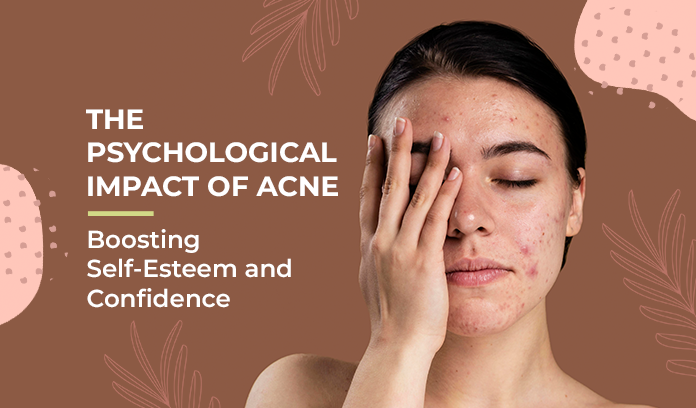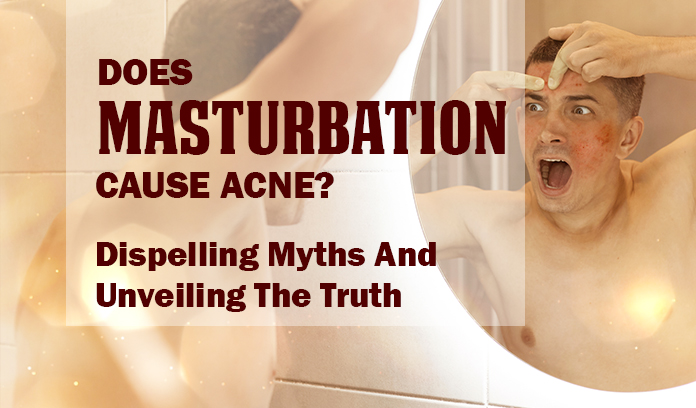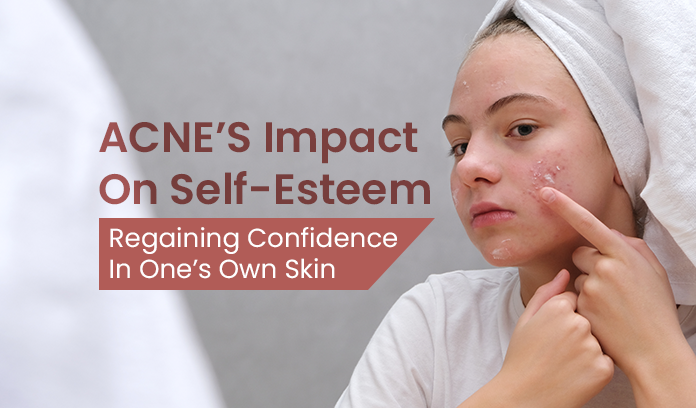It’s wise to remember that while Acne is a common skin condition affecting millions around the globe, it goes far beyond physical manifestation.
The emotional toll of acne can cause a significant blow to our self-esteem and confidence.
In this blog, let us explore successful strategies that help boost self-confidence amidst acne’s challenges.
Grasping the psychological impact:
Acne scars often leave an individual feeling self-conscious, out of place, and even embarrassed.
With society‘s conventional and limited perception of beauty, acne during the teenage years can be the most frustrating and challenging of all.
As a result, many individuals resort to skincare fads or harsh products without a basic overview of the problem. Acne can affect various aspects of life, including relationships and professional pursuits.
Seeking professional help
Consulting a dermatologist or mental health professional can provide a profound and positive support network.
A dermatologist will provide a personalized acne treatment plan tailored to your skin’s unique makeup. This will help boost skin health and significantly improve self-confidence.
Therapists, on the other hand, can help foster your resilience and help address the emotional impact of having a skin condition that is persistent enough to affect your self-image.
A mental health professional will also provide you with a few helpful coping mechanisms.
Nurturing a self-care routine and practices
Developing a self-care regimen can positively impact your mental well-being and energy.
It comes with the ability to prioritize activities that help you relax, unwind, and reset your body.
Incorporating mindfulness, exercise, and hobbies into your day or weekly plan can eliminate stress and elevate energy levels. Moreover, maintain a balanced lifestyle with wholesome nutrition and adequate sleep for optimal well-being.
Embracing self-acceptance
Despite the persisting skin ordeal that it has come to be, acne is still not powerful enough to define who you are.
In a world that runs on external appearances and aesthetics, embracing self-acceptance can be the best thing for acne.
Cultivate an attitude of self-acceptance by cherishing your inner qualities, quirks, and achievements. The best thing for acne is combating it with a support network that includes true friends and family. They will value you beyond your external appearance.
Practice Positive Self-Talk
Monitor your internal dialogue and challenge intrusive thoughts that are negative and do not serve you.
Try replacing self-criticism with timely affirmations and gratitude.
When you recognize that everyone faces challenges, dealing with acne will not seem like the worst possible condition to combat. Acne does not define your self-worth. It is time to celebrate small yet significant victories that let you focus on personal growth.
Conclusion
On the surface, acne is a far too common skin problem affecting people across age groups and cultures.
The underlying importance of combating acne lies in self-care practices that enhance skin health and help you feel better in the long run.
Incorporating a positive self-image might take time, but cultivating an all-or-nothing attitude toward skin problems can limit your potential as a human being.











